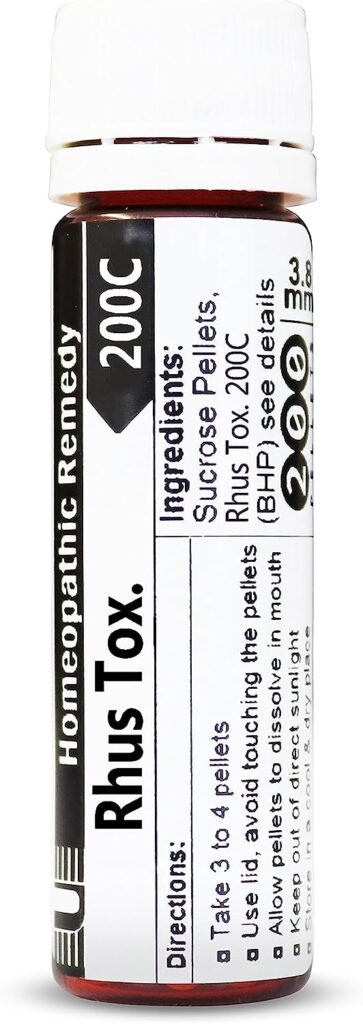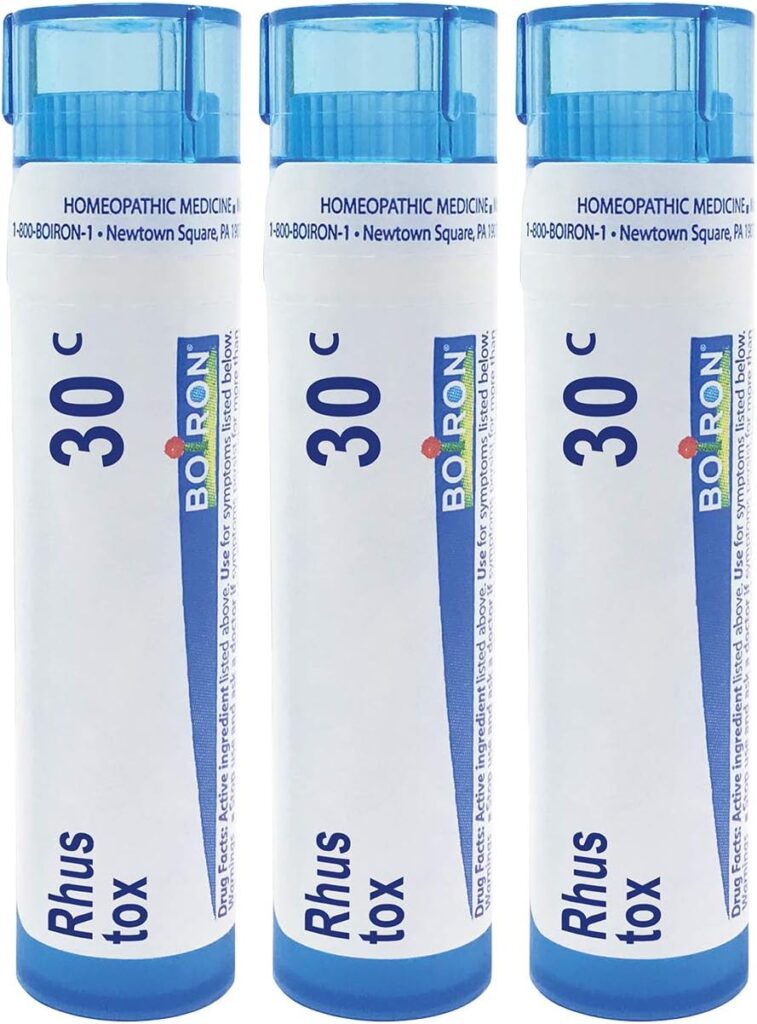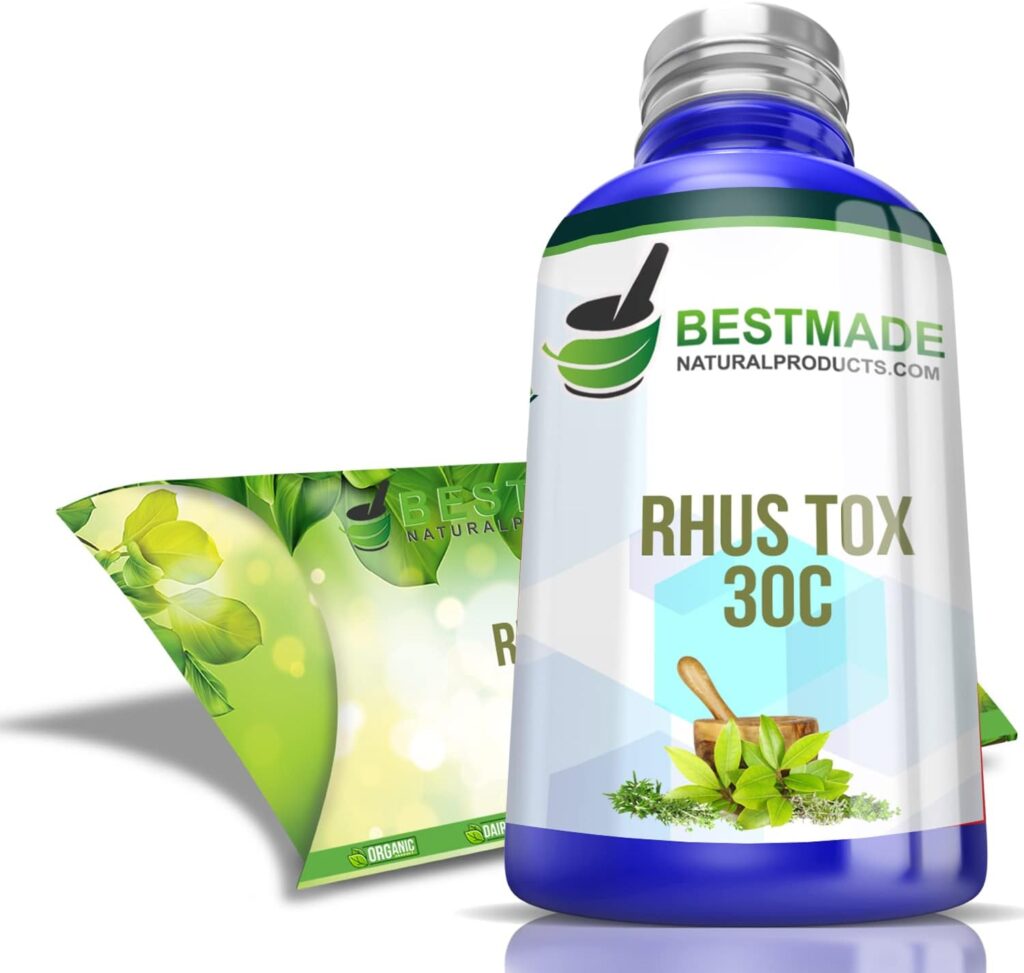In the realm of homeopathy, Rhus Tox, commonly referred to as Poison Ivy or Poison Oak, is harnessed as a remedy to address a spectrum of symptoms associated with skin ailments, including blisters, hives accompanied by rheumatic pains, and various forms of cold sores. A peculiar characteristic of Rhus Tox is its reputation as the ‘creaky gate remedy’ due to its distinctive pattern of sore and stiff muscles and joints. These symptoms are exacerbated during rest or upon initial movement, improve with continued motion, and then regress with excessive physical exertion. Cold and damp conditions tend to aggravate the discomfort experienced by those needing Rhus Tox. Individuals seeking this remedy typically exhibit both mental and physical restlessness, and their tongue may exhibit a distinctive triangular, red tip.

Hives:
Rhus Toxicodendron proves efficacious in addressing urticaria (hives) accompanied by rheumatic pains, indicating its versatility in treating skin conditions intertwined with musculoskeletal symptoms. It further targets itching, painful blisters, and skin irritation that notably ameliorates upon the application of hot water. For herpetic eruptions, colloquially known as fever blisters, particularly around the lips with a preceding yellow discharge before crusting, Rhus Toxicodendron offers therapeutic benefits. It also extends its efficacy to manage corner-of-the-mouth cracks. Notably, the intense burning sensation associated with these eruptions finds relief through the application of hot water.
Influenza:
In cases of influenza, Rhus Tox is distinguished by restlessness combined with aching muscles and joint pains. The remedy corresponds to a fever marked by alternating bouts of heat and chills, with an intriguing preference for alleviation through hot beverages. Additionally, Rhus Tox is indicated for laryngitis cases where the individual experiences strengthening of the voice upon use, only to lose it again after overexertion. This unique and complex remedy encompasses both physical and mental spheres, offering a comprehensive approach to addressing diverse symptoms that manifest within the body.

Joint Issues:
This remedy finds its application in addressing a range of joint issues characterized by stiffness. The stiffness, often ameliorated by gentle movement, is accompanied by discomfort that is effectively alleviated through the application of heat and hot compresses. Conversely, damp and cold weather exacerbates the pain associated with these joint problems, serving as a key indicator for the potential use of Rhus Tox. This remedy finds particular resonance with individuals who experience restlessness coupled with discomfort, leading to frequent stretching as a means of seeking relief.
Sprains & Strains:
Furthermore, Rhus Tox extends its efficacy to managing sprains and strains, where individuals may encounter stiffness and soreness in joints or the back. However, the discomfort tends to subside upon movement or flexing. Interestingly, the pains and stiffness in such cases exhibit improvement with gentle motion and the application of heat. Yet, they worsen in response to overexertion, underlining the remedy’s characteristic pattern. Moreover, massage and firm pressure are conducive to alleviating the pains and stiffness associated with these conditions.
Treatment for Animals:
In the realm of veterinary care, Rhus Tox offers a beneficial approach to addressing rheumatism, lameness, or stiffness experienced by animals. The remedy showcases its efficacy by promoting improvement through motion and warmth, while the symptoms are exacerbated during periods of cold, wet weather. Restlessness and a proclivity for frequent stretching are distinctive indicators that may guide its administration. Through its intricate symptomatology and diverse application, Rhus Tox underscores its significance within the sphere of homeopathic medicine.

